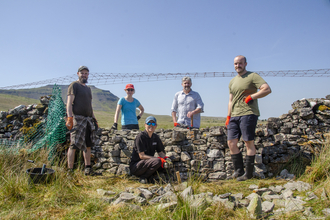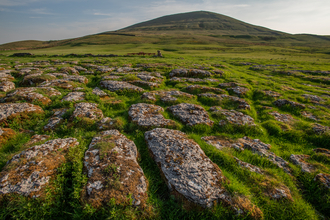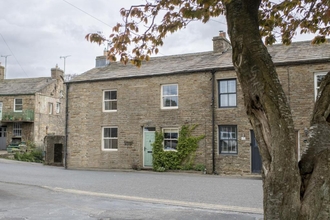Help us create a wilder Ingleborough
Reaching new heights for nature
Ingleborough and its iconic foothills are the last stronghold for rare and threatened species that are found nowhere else in the world.
Right now, we are in a critical race against time to create bigger, better and more connected areas of habitat that give these species the space they need to flourish.
We must protect, restore and reconnect this iconic landscape today before these species are lost forever.
Ingleborough needs you!
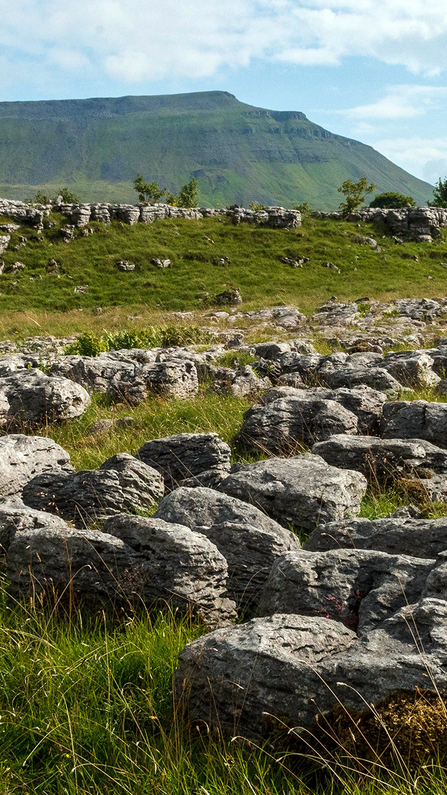
View of Ingleborough from Southerscales - (C) David Berry
A wild past and a wilder future
If you stood here over a thousand years ago, you would see a wild abundance of plants and animals. The limestone pavements would barely be recognisable and covered with mosses, ferns and shrubs.
Wild grazing animals wander in small herds, selectively grazing to produce varied sward heights or grasses and flowers brimming with butterflies and bees
Today remnants of this rich habitat survive in unconnected fragments. Thousands of years of human activity and a changing climate means 1 in 6 UK species now face extinction without our help.
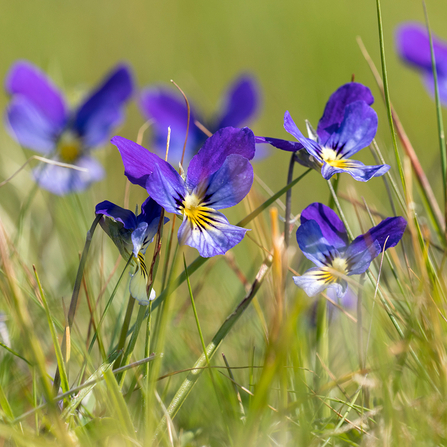
Mountain Pansies - (C) John Potter
Our vision for a wilder Ingleborough
This area of Ingleborough has the potential to be the most significant limestone landscape in the world - where nature is once again abundant, and people are inspired to respect, protect and enjoy the landscape.
Thanks to its unique geology and habitats, Ingleborough has the potential to support hundreds of wildlife species, and be a real beacon for nature’s recovery in the Yorkshire Dales.
Working with partners and people at its heart, we will create a nature recovery network, connecting pieces of protected land to create a vast, wild landscape.
With its flourishing limestone grasslands, home to colourful and abundant wildlife, Wild Ingleborough is an impressive landscape-scale restoration programme in the Yorkshire Dales that is on the cusp of reaching new heights for nature and climate resilience.
Donate to the Ingleborough Appeal
Solutions
Through a balance of interventions such as conservation grazing, traditional land management and natural regeneration, we are creating a mosaic of different habitats, which will support a diverse range of species; from blanket bog, to wood pasture; wildflower meadow, to the unique limestone pavement which makes Ingleborough so special.
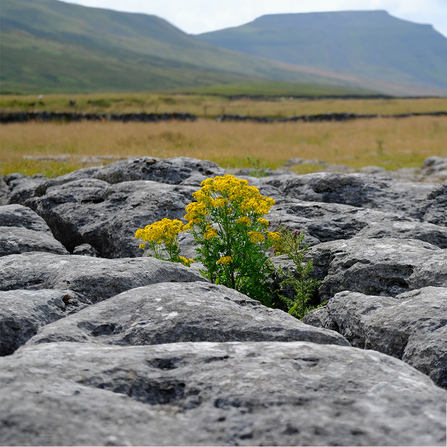
(C) Tony Gill
Pavement revegetation
Historically, Ingleborough's limestone pavement would have been blanketed by moss, ferns and shrubs. The deep, sheltered grykes act like mini ecosystems and can support a diverse range of plants and invertebrates.
We have collected spores from the dwindling populations of holly ferns and are propagating rare montane tree species like creeping willow to plant out on the pavement - returning it to its former glory.
£25 could enable us to grow and plant out five limestone plants from seed
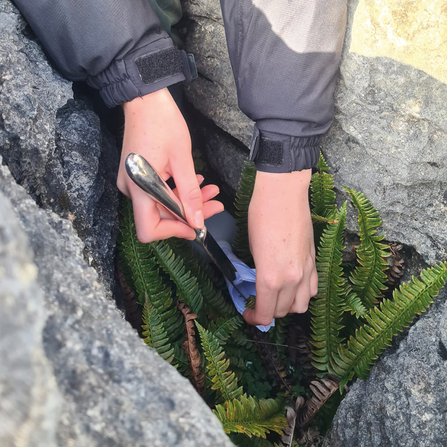
Spraying holly fern spores in to the grikes between the limestone pavement - (C) Tim Thom
Our High Altitude Nursery
Extremely rare montane plants, like Yorkshire sandwort (found only in this small corner of the world) cling desperately to Ingleborough’s rocky places, unprotected and teetering on the brink of global extinction.
Our amazing conservation team have gone to painstaking lengths to collect cuttings and seeds from these last remaining specimens.
By propagating these fragile plants in our dedicated nursey we can restore and recover dwindling populations and introduce them to new areas of Ingleborough.
£50 could help to equip and train volunteers to grow and establish montane wild flowers
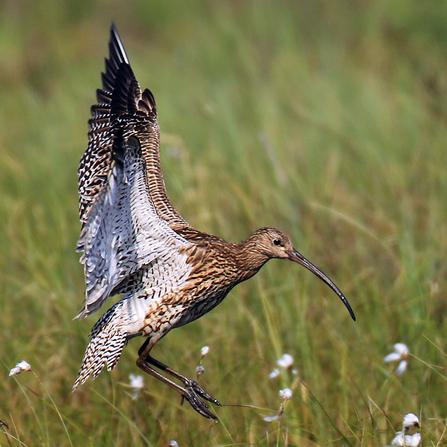
Curlew - (C) Jon Hawkins
Bigger, better, more joined up
Across Ingleborough, animals and plants are confined to isolated pockets of habitat, unable to expand across disconnected fragments of land in search of food, shelter, or a mate.
We want wildlife to have as much space as possible to expand, explore and thrive, and for the space to be managed for nature, resilient to a changing climate.
Woking in collaboration with Natural England, our reserves and the National Nature Reserve currently cover 1,300 hectares – with the momentum to expand further.
£100 could provide a day of monitoring and surveys to help inform and target our work
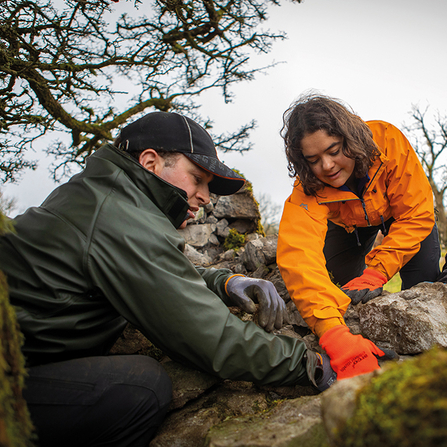
Volunteers dry stone walling
Retaining heritage
The Yorkshire Dales are world-renowned for their patchwork of fields bordered by dry stone walls. We have trained staff and volunteers to build and repair dry stone walls, and continuously work to ensure robust boundaries to manage livestock and maintain local character.
Everything we do to restore nature will be with heritage in mind, preserving crafts and skills - while learning, trialling new conservation techniques along the way, as our climate changes.
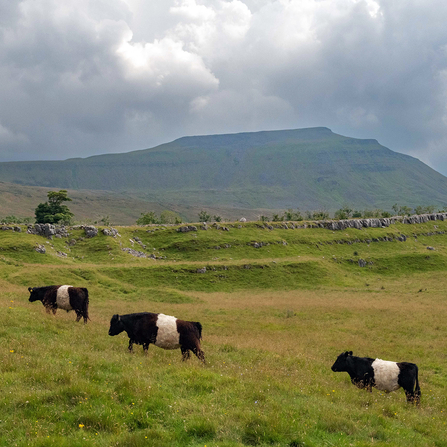
Belted Galloways grazing at Southerscales - (C) David Berry
Conservation grazing
Low intensity grazing allows vegetation to recover and the diversity of plant species to re-establish.
Cattle are less fussy than sheep, content to chew away at rank grasses, and their style of eating results in varied grass height, which is great for ground nesting birds.
Cattle grazing leaves niches in the grass, which allows new seeds to germinate.
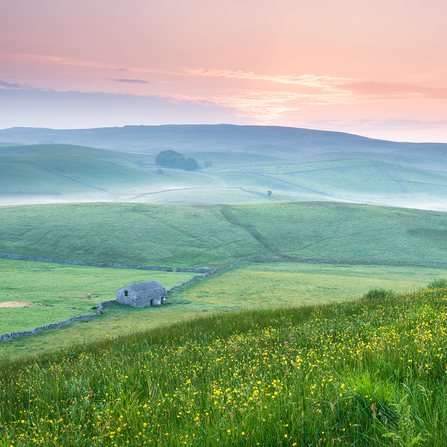
Ashes Pasture sunrise
Connecting people with nature
We are working with local primary schools to help children achieve their John Muir award, encouraging young children to connect with and preserve Yorkshire's natural world. Our community access fund also supports people from further afield to access the amazing Wild Ingleborough landscape.
£500 could enable a school day trip to visit and learn about Ingleborough
Be part of landscape-scale change!
Events, volunteering and more
Discover Wild Ingleborough first hand through our exciting events and practical conservation task days.

